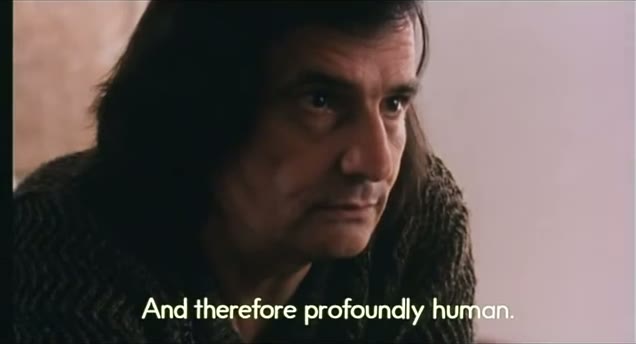Regie:
Bertrand BonelloDrehbuch:
Bertrand BonelloKamera:
Josée DeshaiesMusik:
Bertrand BonelloBesetzung:
Jean-Pierre Léaud, Jérémie Renier, Dominique Blanc, Catherine Mouchet, Thibault de Montalembert, André Marcon, Laurent Lucas, Richaud Valls (mehr)Inhalte(1)
Nach langer Zeit kehrt ein Regisseur von Pornofilmen in sein Metier zurück, um Schulden zu tilgen. Doch in den vergangenen Jahren hat sich vieles verändert. Jacques Laurent ist ein gealterter Pornoregisseur, der in den 1970er-Jahren sehr erfolgreich war. Aus finanziellen Nöten fängt er an, wieder in seiner alten Branche zu arbeiten. Jacques, der immer Wert darauf gelegt hat, Pornofilme mit künstlerischem Anspruch zu machen, findet sich unter den neuen Gegebenheiten nur schwer zurecht. Während der Dreharbeiten taucht außerdem sein mittlerweile erwachsener Sohn Joseph auf, der radikal für konservative Werte eintritt und die Arbeit seines Vaters verachtet. In langen Gesprächen nähern sich Vater und Sohn, die jahrelang keinen Kontakt hatten, wieder an. "Der Pornograph" ist ein Film über das Filmemachen, der sich feinsinnig und poetisch mit der gescheiterten Karriere eines Mannes auseinandersetzt und gleichzeitig den Vater-Sohn-Konflikt ins Zentrum stellt. (3sat)
(mehr)Kritiken (1)
"What kind of actresses do you prefer?" - "Beautiful girls with bourgeois manners, inaccessible to the working class and with the authenticity of a prostitute." This is not a confession of the director's casting preferences, but rather Bonello's description of all European art films produced by artistic "auteurs" since the 1960s. Those who carefully watch the end credits will come across Pasolini's quote: "History is the passion of sons who want to understand their fathers." Bonello's The Pornographer is a sprawling confession by Bonello about his own profession - but it is not pornography, it is the creation of authorial films - which undergoes a similar crisis: revolutionary character, social influence, youth and energy, along with the older generation of classics and the May 1968 movement, have long disappeared from artistic production, leaving only nostalgic, sad, and tiresome contemplation about the meaningfulness of one's own work, which probably no longer interests anyone. The involvement of Léaud is doubly fitting in this sense - the effort to understand his role from the perspective of his film son also means us understanding Léaud himself, who was 24 years old during the May events and played in films by Godard, Pasolini, Truffaut... /// Bonello's biggest problem lies in the form and once again, we are largely confronted with bloodless linear storytelling.
()

